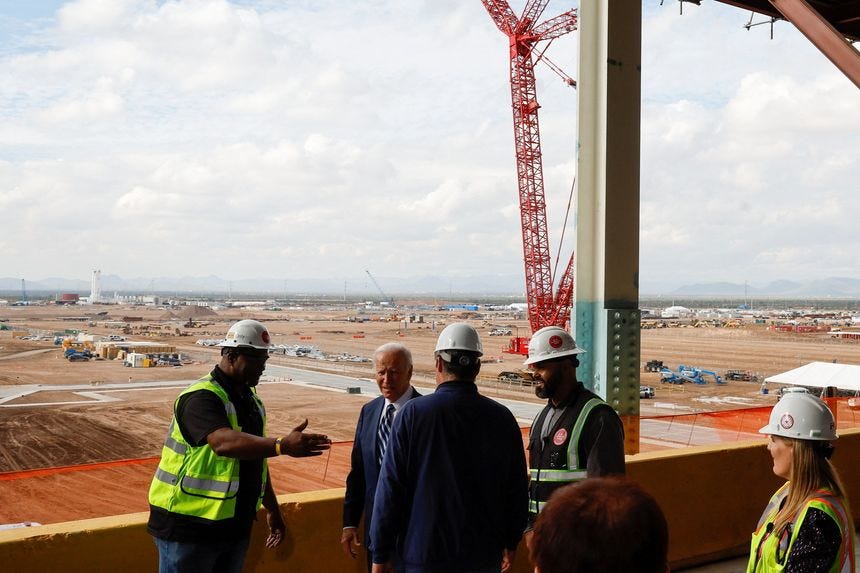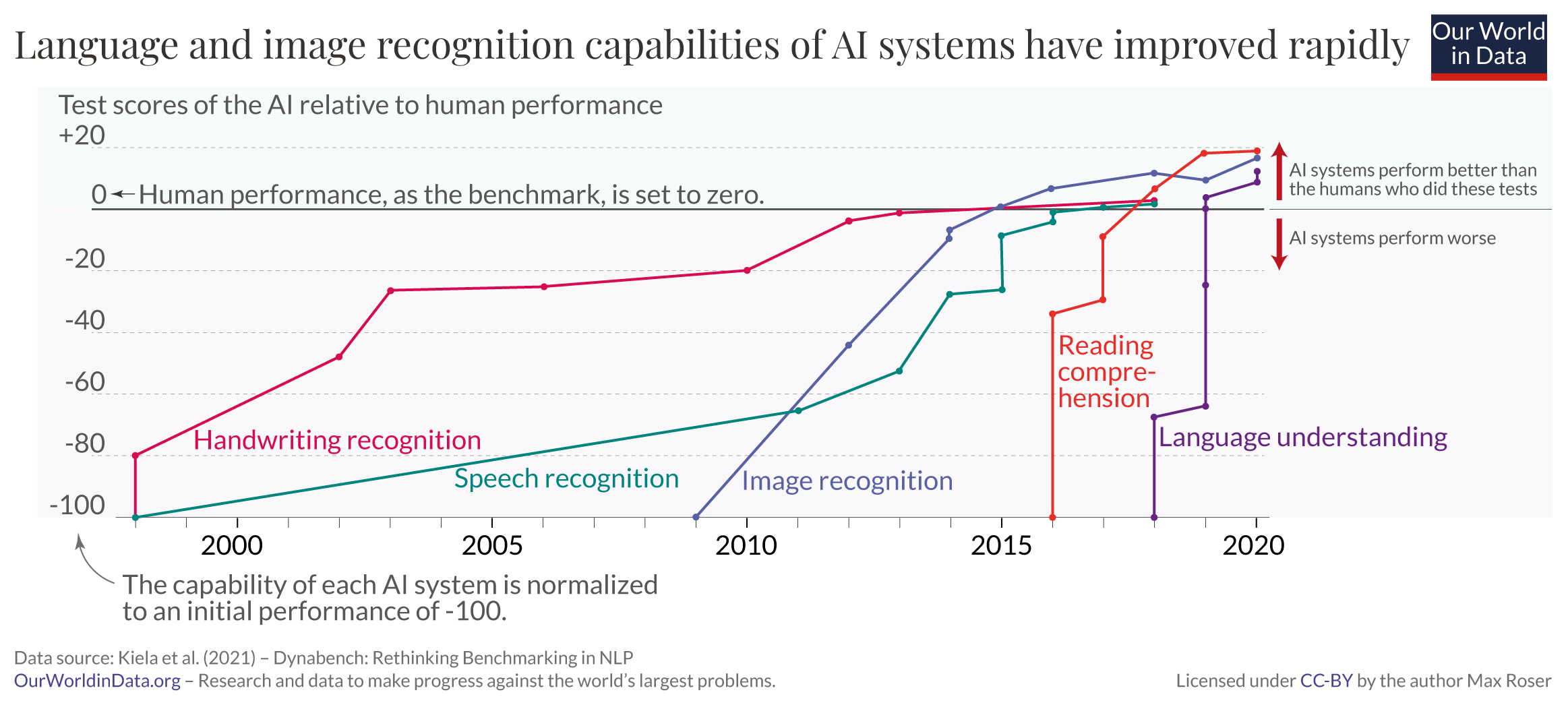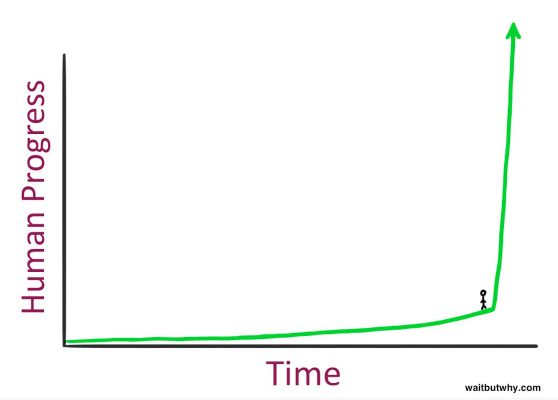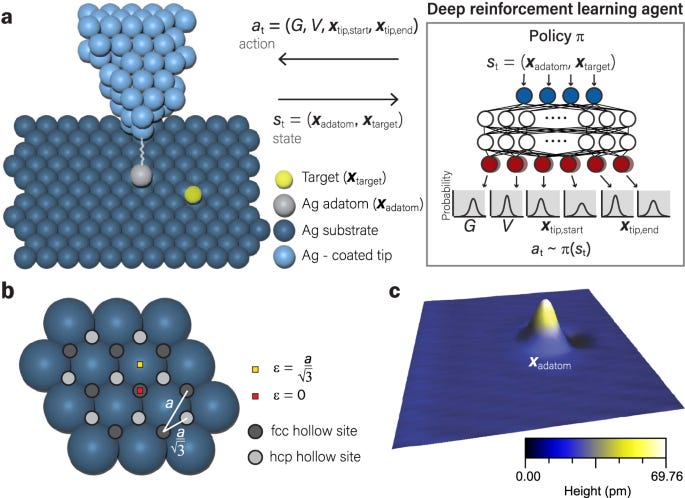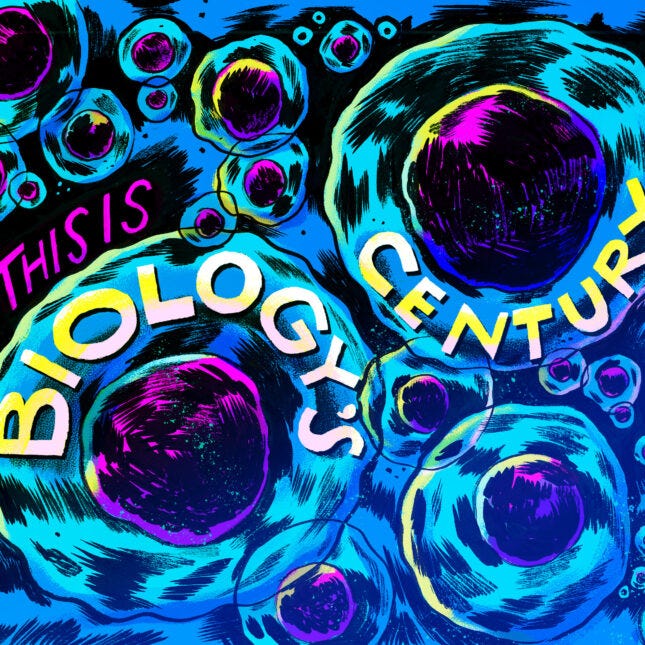Not Boring by Packy McCormick - Weekly Dose of Optimism #23
Weekly Dose of Optimism #23TSMC Factories, Our AI in Data, Nano x AI, The Century of Biology, Malaria AntibodiesHi friends 👋, Happy Friday and welcome to our 23rd Weekly Dose of Optimism. It’s our Jordan edition. Let’s make it the greatest of all-time (at least, up to this point.) Let’s get to it. The Weekly Dose is brought to you by… Composer You know Composer, I love Composer — the investing app that helps you achieve superior returns with logic and data. Since founding its algorithmic trading platform in 2020, Composer has helped over 20,000 customers trade 100s of millions of dollars. I’m one of them — after finally admitting I’m a terrible trader, I’ve moved my public markets investing to Composer’s automated strategies and I try to add to my account whenever I can. Here’s what I like about using Composer:
If you’ve also realized you might not be as much of a trading genius as you thought last year… (1) TSMC Raises Arizona Chip Investment to $40 Billion as Biden Visits Yang Jie and Ken Thomas for The Wall Street Journal
Earlier this week, President Biden visited the site of TSMC’s chip manufacturing facility in Arizona. This was on the heels of the White House announcement that the Taiwanese chip manufacturer committed to opening a second factory on the site and to increasing its planned investment from $12B to $40B. It’s interesting that these announcements are coming from the White House and not TSMC itself — the Biden Administration clearly views the re-shoring of chip manufacturing as a political priority, and has continued to double-down on it with both policy and PR. We tend to believe that the U.S. reducing its reliance on foreign manufacturing is a good thing — specifically when it comes to chips — but we’d be remiss to not mention the challenges with this plan. Ben Thompson has a good overview here, but in short, the TSMC chips in Arizona will cost about 50% more, be a few years behind the chips being produced in Taiwan, and do little to prevent a worst-case-scenario China invasion of Taiwan. There are also apparently challenges in attracting the right talent to staff these factories and relatively serious clashes in management styles between TSMC and its American partners. So perhaps this really is all a show of pomp and circumstance, and these two factories are really just two very expensive Biden monuments. Or, perhaps more optimistically, this is a flawed but necessary first step in re-shoring American manufacturing capabilities and trying to ensure that we don’t get caught flat-footed and chip-less. (2) The brief history of artificial intelligence Max Roser for Our World in Data There’s a reason chips have become increasingly political — they are super important, especially in rapidly growing field of AI. Our World in Data released a report that shows, quite clearly, that we are approaching (or are already in) the golden age of AI. Slowly at first then all at once — as the OWID charts show, many of the AI developments we are seeing today are actually the result of multi-decade slogs in computing, chip design, and theory. And it’s all starting to come together: in just the past 10 years, AI has started to outperform humans in handwriting recognition, speech recognition, image recognition, reading comprehension, and language understanding. And the slope of advancement is increasing — it took AI 15 years to outperform humans in handwriting recognition but only 1 year to outperform us in the more complex goal of language understanding. Our World in Data does a great job charting out all of the data (and you should check out the full report), but I think one Tim Urban graph captures all the AI developments even more succinctly: (3) Precise atom manipulation through deep reinforcement learning Chen, Aapro, Kipnis, Ilin, Liljeroth, and Foster in Nature via Eli Dourado
While most of the recent AI excitement has focused on the wild consumer-facing tech that we now have access to — ChatGPT, Stable Difussion, and the like — AI’s impact is being felt in science and engineering, too. In this paper, the authors use deep reinforcement learning to solve automation problems in nanofabrication, where “engineering quantum states requires precise manipulations at the atomic level.” One of my favorite books of the year, as you’re probably sick of hearing, is Where Is My Flying Car? When I saw Eli Dourado’s tweet about this Nature article, my ears perked up, and I went back to my WIMFC notes. There it was:
If that’s the promise of nanotech x AI, this paper is a welcome step. I think it’s also just another hint that the future is going to be born from the intersections of all technologies we talk about here every week. (4) Here’s why we’re not prepared for the next wave of biotech innovation Matthew Herper for STAT
We’re big believers in The Century of Biology here at Not Boring — it’s even the name of Not Boring writer/investor Elliot Hershberg’s Substack, The Century of Biology. Biology has made incredible advances in the past decade alone:
The science continues to progress, and seems to be moving even faster than it did in the past decade, in part due to biology’s intersection with AI. But Harper cautions that our infrastructure, specifically enrolling enough people in studies to make sure the drugs actually work, may continue to be a big bottleneck. We love us some innovation here at Not Boring, but this piece is a reminder that the infrastructure is often just as important. The innovations don’t matter if they don’t get to market. Harper put it well:
(5) Scientists Eye Monoclonal Antibodies for Malaria as Drug Resistance Looms Madison Muller for Bloomberg, h/t Alec Stapp
A new monoclonal antibody drug, developed by the NIAID, was 88% effective at preventing adults from malaria infection during a 6 month study period in Mali. We wrote about the potential eradication of malaria in WDoO #15 and these results indicate that we are well on our way. Beyond its effectiveness, the antibody only has to be administered once per year, which means that distribution and adherence may be more plausible in areas that are the hardest to reach and hardest hit by malaria. Go science. That’s all for this week. We’ll be back in your inbox 9am EST on Monday morning. Enjoy the weekend! — Packy |
Older messages
Four Seasons Total Tech
Monday, December 5, 2022
Winter is Ending in AI, Solar, Nuclear, Space, & Biotech. Summer is Coming
Weekly Dose of Optimism #22
Friday, December 2, 2022
Alzheimer's Treatment, Shape Rotators and Wordcels on Generative AI, ChatGPT, Diplomatic AI, Wormholes, and Good Quests
Decentralization
Monday, November 21, 2022
The Era of Decentralization is coming.
Weekly Dose of Optimism #21
Friday, November 18, 2022
Artemis I, AI Creative Tools, Anton Teaches Packy, 8 Billion Humans, Things Can Always Be Better
Discounting Belief
Monday, November 14, 2022
What to do when everyone stops believing
You Might Also Like
Discover a preview of the content keeping Digiday+ members ahead
Thursday, February 27, 2025
Digiday+ members have more ways than ever to stay ahead of the news and trends transforming media and marketing. Explore premium content from our editors below, including weekly briefings, research and
See you in Boston?
Thursday, February 27, 2025
...back in person for the first time since 2019! Exploding Topics Logo Presented by: Semrush Logo You follow Exploding Topics because you want to get an edge on your competition. Now take that
Why I'm doubling down on my community in 2025... (free bonus)
Thursday, February 27, 2025
Hi there 2025 is chugging along (it's almost March!) – and there's a ton going on right now. But there's something that hasn't changed. Your agency still needs a constant stream of new
Programmer Weekly - Issue 243
Thursday, February 27, 2025
February 27, 2025 | Read Online Programmer Weekly (Issue 243 February 27 2025) Welcome to issue 243 of Programmer Weekly. Let's get straight to the links this week. Streamline IT management with
🎙️ New Episode of The Dime China Tariffs & The Next Era of Vapes: Impact on Supply Chains & Brands ft. Nick Kovacevich
Thursday, February 27, 2025
Want to be featured on The Dime Podcast? Scroll to the end of this email to find out how. Listen here 🎙️ China Tariffs & The Next Era of Vapes: Impact on Supply Chains & Brands ft. Nick
80% less time on social reporting sound good?
Thursday, February 27, 2025
Get Forrester's Total Economic Impact™ of Sprout. ͏ ͏ ͏ ͏ ͏ ͏ ͏ ͏ ͏ ͏ ͏ ͏ ͏ ͏ ͏ ͏ ͏ ͏ ͏ ͏ ͏ ͏ ͏ ͏ ͏ ͏ ͏ ͏ ͏ ͏ ͏ ͏ ͏ ͏ ͏ ͏ ͏ ͏ ͏ ͏ ͏ ͏ ͏ ͏ ͏ ͏ ͏ ͏ ͏ ͏ ͏ ͏ ͏ ͏ ͏ ͏ ͏ ͏ ͏ ͏ ͏ ͏ ͏ ͏ ͏ ͏ ͏ ͏ ͏ ͏ ͏ ͏ ͏ ͏
Social proof in email marketing, National Toast Day, and the art of CTAs
Thursday, February 27, 2025
The latest email resources from the Litmus blog and a few of our favorite things from around the web last week. ͏ ͏ ͏ ͏ ͏ ͏ ͏ ͏ ͏ ͏ ͏ ͏ ͏ ͏ ͏ ͏ ͏ ͏ ͏ ͏ ͏ ͏ ͏ ͏ ͏ ͏ ͏ ͏ ͏ ͏
Python Weekly - Issue 688
Thursday, February 27, 2025
February 27, 2025 | Read Online Python Weekly (Issue 688 February 27 2025) Welcome to issue 688 of Python Weekly. We have a packed issue this week. Enjoy it! The #1 AI Meeting Assistant Summarize 1-
Free download: 5 ways to improve your proposals
Thursday, February 27, 2025
A free resource for you ͏ ͏ ͏ ͏ ͏ ͏ ͏ ͏ ͏ ͏ ͏ ͏ ͏ ͏ ͏ ͏ ͏ ͏ ͏ ͏ ͏ ͏ ͏ ͏ ͏ ͏ ͏ ͏ ͏ ͏ ͏ ͏ ͏ ͏ ͏ ͏ ͏ ͏ ͏ ͏ ͏ ͏ ͏ ͏ ͏ ͏ ͏ ͏ ͏ ͏ ͏ ͏ ͏ ͏ ͏ ͏ ͏ ͏ ͏
From living in a car to $1.4M in 5 months
Thursday, February 27, 2025
I love that you're part of my network. Let's make 2025 epic!! I appreciate you :) Today's hack From living in a car to $1.4M in 5 months Taro Fukuyama and 2 of his friends from Tokyo


